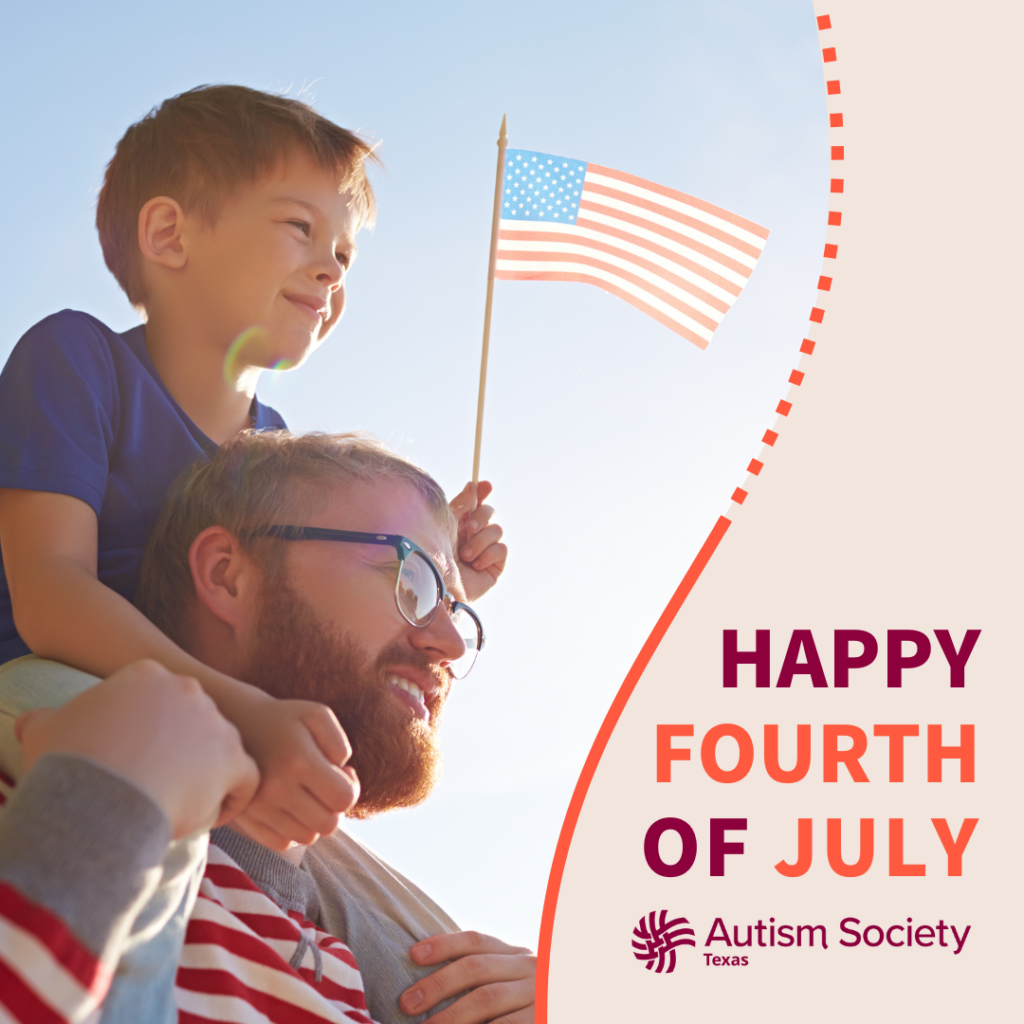 The 4th of July holiday usually includes a bunch of fun, exciting activities for individuals and families to enjoy but these activities can often be overstimulating for people on the spectrum. Check out these tips to help set you and your family up for success this 4th of July!
The 4th of July holiday usually includes a bunch of fun, exciting activities for individuals and families to enjoy but these activities can often be overstimulating for people on the spectrum. Check out these tips to help set you and your family up for success this 4th of July!
- Plan the activity that is right for you! Consider what you think you, your child or teen can handle & pick your activity accordingly. Take into consideration bedtime, crowds, loud noises, and think about what your options are. A family picnic or neighborhood parade might be more enjoyable than fireworks. Also consider watching fireworks from a distance if you or your child is noise-sensitive!
- Prepare for the activity to set everyone up for success! Whether it’s a parade or fireworks (or both!), discuss it before hand. Make a simple story about the activity that explains the who/what/when/where of your activity, and how that will impact the child or teen and what they can do in the situation. The story should have simple descriptions and pictures. Include any fun parts of the day as well as potential scary things and then what the individual can do if they feel scared or overwhelmed. How can they take a break? Do they know how to communicate that? You can google pictures from past events if it’s an annual activity like a local fireworks display or a parade. If there’s any videos from past years, show the video too!
- Have an escape route & pick your location wisely! If you’re doing something that has the potential to be overwhelming, discuss in advance with other adults attending how you’re going to leave the situation if things don’t go well. Decide on a clear exit strategy as well as what each adult’s role is during the event. Also consider where you will be located during the event as you may also want to sit somewhere that is easy to exit from or that has a lot of room to move around.
- Bring items to help with sensory issues. Noise reducing or noise canceling headphones can be a life-saver. Try them at home first and make sure you or your loved one knows they can wear them if needed. Older children, teens and adults may be fine wearing ear plugs. Include this in your story! If light-sensitivity is an issue, offer sunglasses.
- Bring electronic devices, toys & snacks! Bring things to do and warn about the wait if there will be one! Bring snacks, fidget or sensory toys, and activities to do while waiting. Include this in your story! Make sure electronic devices are charged and if your child uses one for communication, practice how they will let you know if they need a break or need to leave.
- Discuss safety concerns & take precautions. Discuss potential safety concerns with the other adults attending and make a plan. For example if this activity is near a body of water, you may want to pick a location during the event that is farthest from the body of water as well as go over water safety tips with your family before the event.
